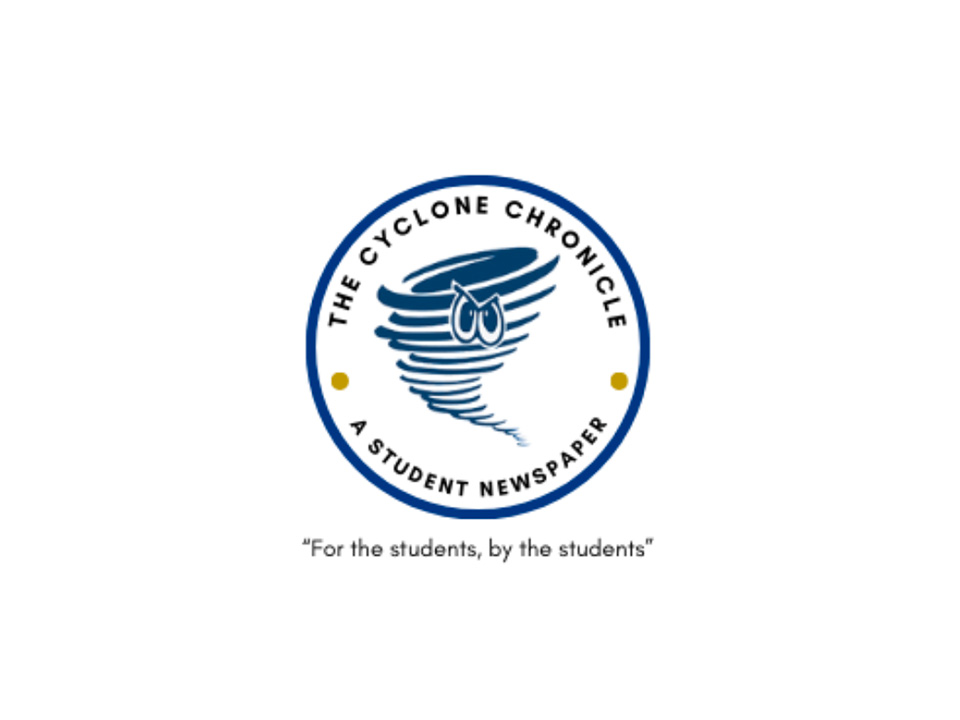

In our Bachelor of Arts (B.A.) in Writing, you will learn how to tell compelling, memorable stories. Centenary’s writing major includes a combination of classes in creative writing, professional writing, and journalistic writing. Students can choose to focus on one specific area or take a combination of all three. You will have ample opportunity to cultivate your personal voice and understand the expectations for workplace writing. You will learn to report and write articles on current events, public issues, personalities, culture, entertainment, and more!
The B.A. in Writing is intentionally broad-based, to allow you exposure to many kinds of writing. The background provided by the degree will help you to be eligible for the following graduate programs: M.F.A. in Creative Writing, M.A. in Journalism, M.A. in Technical Writing, and an M.A. in Rhetoric and Composition. If you have a degree in education you will be well poised for the Teaching Writing Certificate.
The ability to write well and understand the conventions of writing in the workplace is imperative for all majors. Successful graduates are those who are able to respond seamlessly to a variety of rhetorical situations and needs. The Bureau of Labor Statistics points out a continued need in both the profit and non-profit sectors for employees who are familiar with a variety of business documents. According to their statistics, the following jobs show an average (at least 6%) or above average growth rate for the next ten years:
In addition, positions in editing and content creation show static growth, and the median salary for such positions is approximately $63,000. Both medium.com and wework.com also report a “soaring need” for content creators in the job market.
A Minor in Creative Writing can showcase your ability to think outside the box and provide creative solutions to problems, all using the most precise language possible.
Creative Writing is the practice of writing fiction, nonfiction, poetry and creative forms for publication in print and online. Creative Writing involves everything from food reviews to poems and short stories, fantasy and fact. It requires a range of skills and knowledge, including the ability to understand the rules of writing in different forms and formats, and the ability to present information and concepts to an audience using compelling language.
A minor in Creative Writing can showcase strong writing skills to an employer, even if students don’t intend to make creative writing their career. Overall, a minor in creative writing makes them more effective communicators.
Employers value transferable skills such as understanding the precision of language and the ability to edit documents.
Learning how to write more precisely also requires students to think more precisely. As they work to create the best documents in the best format with the best words, Centenary students practice critical thinking skills as well.
Students with a minor in creative writing at Centenary will leave with skills that are valuable in a range of careers. The ability to think creatively about your writing can also help you think creatively in other areas such as finding alternative solutions to problems and thinking outside the box. Creative writers also have strong skills in looking at alternative angles. Creative writing’s focus on language can make them better communicators in other areas, too.
Even if students aren’t looking to work in the creative writing field, employers value students who understand the value of compelling prose and the ability to publish work. Centenary students have the opportunity to submit creative work to the campus newspaper, The Cyclone Chronicle. As well, our internship program gives students experience with local and regional publications.
A Minor in Journalism can provide individuals with valuable experience writing well-researched information and working in a fast-paced, deadline-driven environment, skills that can be beneficial in a range of careers.
Journalism is the practice of collecting, writing, and reporting news, information, and opinions for print, online, and broadcast media. Journalism is essential to a functioning democracy and a free society because it provides the public with the information they need to make informed decisions. It also provides a forum for diverse opinions and perspectives, facilitating debate and discussion on important issues.
A minor in Journalism can provide individuals with the skills and knowledge they need to succeed in a career in journalism or related fields. In order to fulfill these important functions, journalism requires a range of skills and knowledge, including the ability to research, write, and present information in a clear, compelling and unbiased manner. In the Journalism Minor, students learn assorted journalistic writing styles including news, features, interviews, editorials, sports, and reviews. In addition, students practice interviewing and editing skills according to Associated Press style. A minor in journalism can also provide students with a solid foundation in media law and ethics, which are essential for anyone working in the media.
Additionally, a minor in journalism can provide students with valuable experience working in a newsroom or other media environment. This experience can help them develop their skills and build their portfolio, making them more attractive to potential employers. Depending on the semester, students may have the opportunity to intern with local news media, the student newspaper--The Cyclone Chronicle--and be published in regional magazines.
Even for those who do not intend to pursue a career in journalism, a minor in journalism can be beneficial. It can help individuals become better-informed citizens, enabling them to better understand the news and media they consume. It can also help them develop critical thinking skills, enabling them to analyze information and assess its validity. The ability to write clearly and concisely, present information in a compelling way, and conduct research and interviews are all skills that are in high demand in many fields.
However, the media landscape is changing rapidly, and the rise of social media and other digital platforms has created new challenges for journalism. A minor in journalism can help individuals understand these challenges and develop the skills and knowledge they need to navigate them. This includes an understanding of media ethics and the importance of journalistic integrity, as well as knowledge of digital media and social media platforms. In a world where misinformation and fake news are increasingly prevalent, a minor in journalism can help individuals become critical consumers of information, enabling them to separate fact from fiction.
A minor in journalism is important for both individuals and society as a whole. It provides individuals with valuable skills and experience that can help them succeed in a career in journalism or related fields, as well as in a range of other careers. Centenary’s Minor in Journalism is a valuable asset that can help individuals succeed in their careers and make a positive impact on society.
A minor in Professional Writing shows employers that individuals understand the nature of business documents and have the ability to communicate important information quickly, clearly, and in a variety of formats.
Professional Writing skills are a requirement of any workplace. The ability to present information clearly in order to inform or persuade a reader is vital. Strong writing proficiency isn’t just an “extra” skill to have in the workplace — it’s an essential one. The Centenary Professional Writing minor teaches students how to respond seamlessly to a variety of writing situations and needs.
A minor in Professional Writing at Centenary can provide individuals with the skills and knowledge they need to succeed in any workplace situation by teaching them how to write for almost any purpose, audience, or format. Centenary professional writing students learn principles of document design and layout and apply them to legal documents, business reports, brochures, flyers, blogs, and website content.
A minor in professional writing can provide students with skills that are valuable in a range of careers, including attention to detail, clear and concise language use, research, document planning, organization of ideas, and revising and editing. Employers value the ability to use clear and concise language for a particular audience. Professional writing minors have the ability to present this information in a compelling, organized way in either print or online formats.
Students who do not intend to pursue a career in professional writing still benefit from having the minor. Strong writing proficiency and experience writing for a digital world are increasingly expected and welcomed by employers. Centenary professional writing students are prepared to enter writing-intensive fields such as public relations, corporate communications, marketing, publishing, and advertising.
Additionally, a minor in professional writing can provide students with valuable experience working with non-profit organizations and on-campus publications. This experience can help them develop their skills and build an electronic portfolio, making them more attractive to potential employers. Professional Writing students at Centenary have completed internships with local industry as well as non-profits and publishers.
A minor in Professional Writing is important for both students and prospective employers. It provides students with valuable skills such as presenting information clearly and concisely, in a variety of formats. Centenary’s minor in Professional Writing is an asset that can help students succeed in the business world.
The Cyclone Chronicle is an entirely independent, student-run newspaper of Centenary University. The Cyclone Chronicle reports on news, events, and issues that are relevant to the University community, provides a forum for discussion among students, faculty and staff, and gives students training and experience in the field of journalism.

TOTAL CREDITS: 120
WRI 2005 - Introduction to Creative Writing - 4CR
COM 2001 - Public Speaking - 4CR
STEM - STEM Engagement - 4CR
ELECTIVE - Elective - 4CR
WRI ____ - Writing Elective - 4CR
Culture & Soc - Cultural Understanding in a Global Context - 4CR
Culture & Soc - Creative Expression & Creative Self - 4CR
ELECTIVE - Elective - 4CR
WRI ____ - Writing Elective - 4CR
ENG ____ - English Elective - 4CR
STEM - STEM Engagement - 4CR
ELECTIVE - Elective - 4CR
WRI ____ - Writing Elective - 4CR
ELECTIVE - Elective - 4CR
ELECTIVE - Elective - 4CR
WRI ____ - Writing Elective - 4CR
ELECTIVE - Elective - 4CR
ELECTIVE - Elective - 4CR
WRI ____ - Writing Elective - 4CR
ELECTIVE - Elective - 4CR
ELECTIVE - Elective - 4CR